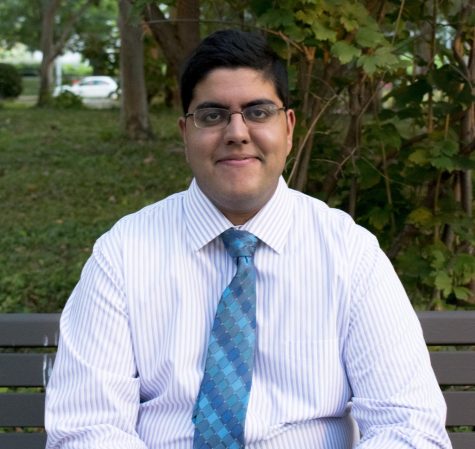Student designs research program on obesity interventions in urban youth
The weekend is always a great time to relax, but few students spend theirs as Precious Amoako does: dancing. As the president of the African Students Association (ASA), she has the privilege of planning the organization’s annual Culture Show, featuring dancing and plays on Apr. 11. Currently, she spends three hours each Saturday and Sunday rehearsing four separate dances.
Helping people is what drives Amoako. That’s why she is doubling as a psychology and nursing major. Despite a challenging academic path, she still wanted to gain experience with research. That’s what led her to the IMPACT research study, a seven-year study aimed at determining a path that is most helpful to improve a child’s health.
Last summer, Amoako conducted a sub-study that found that there was a negative correlation between the Body Mass Index (BMI) from a pre-study medical screening and the self-reported quality of life of participants in the program. This means that those with a higher BMI reported a lower quality of life.
While people may expect the findings, no overarching program actually scrutinized the area. Amoako pointed out that obesity has been studied extensively in the negative outcomes on health, but little research has been done on its effects on actual quality of life.
A total of 360 overweight or obese children, aged nine to 11, participated in the study. Amoako used the Impact of Weight on Quality of Life questionnaire, which is specifically designed for kids and uses a five-point scale ranging from strongly disagree to strongly agree. Included are questions such as “I get out of breath while climbing the stairs” or “I feel uncomfortable sitting in my desk because it’s too small.”
“I focused on questions related to their everyday experience with their weight and how it could be possibly affecting their lives,” she said.
She also inspected the data for any differences in gender or socioeconomic status in responses, but found none. The results show that the IMPACT program’s overarching goal to choose a path to interventions will not only improve health, but also quality of life in these individuals.
The undergraduate research office, SOURCE, funded the project. At first she was just a research assistant to the IMPACT study, but found out that she could use the funds for her own sub-study.
Amoako also designed pamphlets for cooking classes and helped run the classes themselves. She developed a health passport that allows persons to gain points by performing proactive, healthy tasks.
“Every time you do something, you get a stamp—for example, if they go to the Cleveland Metroparks and take a hike,” she said.
Amoako is also studying the modes of transportation that participants in the program choose. Participants can either get a prepaid Taxi ride or a $10 gas card to pay for their transportation to program events. Currently, she maintains a log of which mode participants choose.
Originally from Ghana, Amoako moved a couple times before arriving at Case Western Reserve University. In high school, she enjoyed dancing and has kept the activity up with her participation in the ASA. Despite her academic rigor and research initiatives, Amoako still finds time to participate in other organizations. Sustained Dialogue, a social issues organization, keeps her busy. The group identifies social problems on campus and then picks solutions to them. They then present an action plan to various university officials, including President Barbara Snyder.

Kushagra Gupta is a cognitive science and biology student and is working towards a masters in medical physiology. He's served as The Observer’s The Director...

